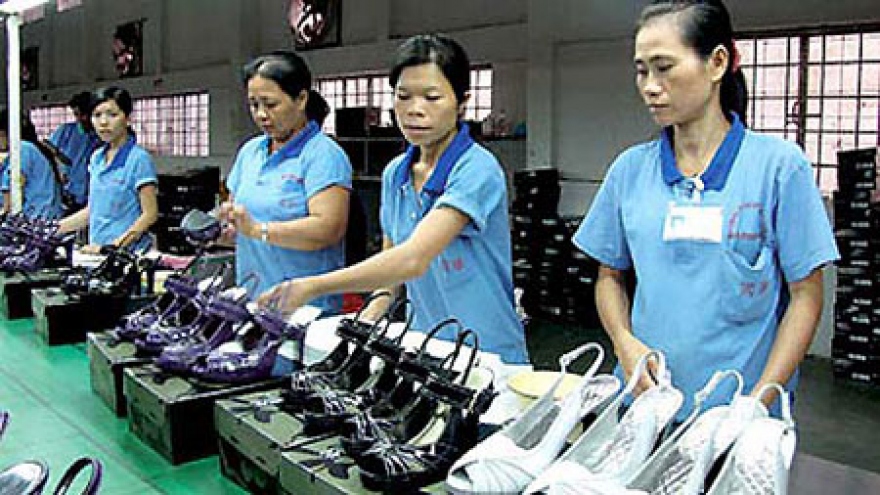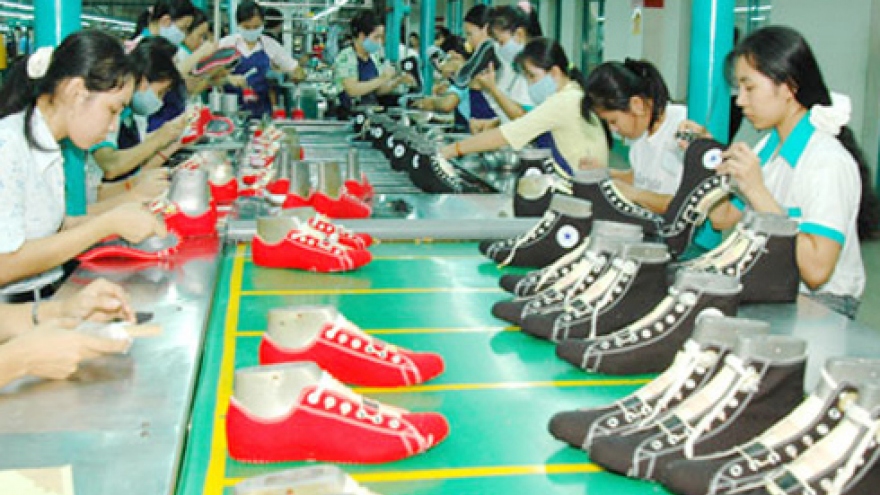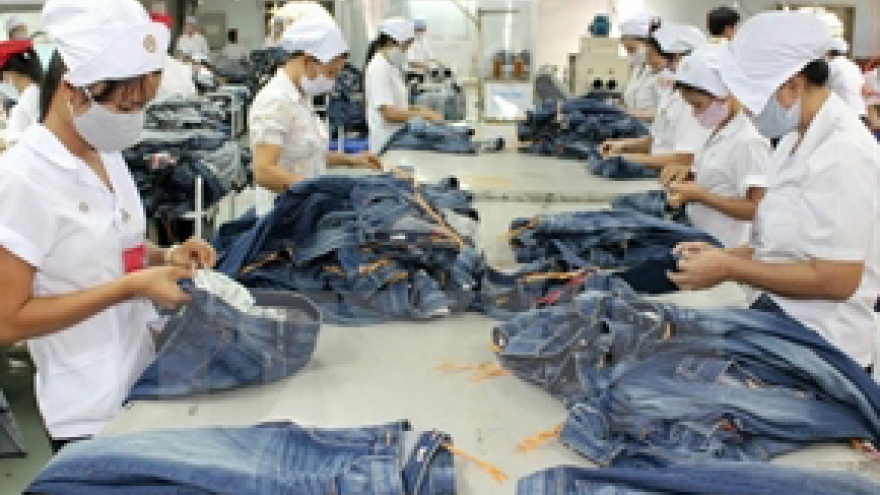Growth of shoe exports to continue in 2016
VOV.VN -Exports of footwear and related items showed robust development for 2015, said speakers at a recent meeting of the Vietnam Leather, Footwear and Handbag Association (Lefaso) in Hanoi.
Lefaso Chairman Nguyen Duc Thuan told the meeting the ASEAN Economic Community (AEC) and other free trade agreements (FTAs) stimulated exports in 2015 and would likely continue to create additional growth for 2016.
Speakers from the Ministry of Industry and Trade (MoIT) were equally sanguine on the prospects for expanded exports, but emphasized the need for greater focus on profitability and sustainability for the industry.
“Last year saw leather and footwear exports surge 16% over the prior year to US$15 billion,” said MoIT Deputy Minister Ho Thi Kim Thoa. “Of which, outbound sales of footwear accounted for US$12 billion, up 16%, and handbags made up US$2.88 billion, up 14%.”
 |
“The total value of exports for 2016 could potentially see yet further growth of another 15 to 20%,” said Deputy Minister Thoa.
However, Thoa said local companies need to concentrate more on developing the domestic support industry to reduce overall cost of raw materials and thereby increase the profit margins on their sales.
Producing raw inputs locally will also position local companies to take full advantage of tariff reductions brought about by FTAs, because it’s best if the raw materials for the industry are sourced locally, Thoa said.
Complicated rules of origin come into play when raw materials are imported from foreign countries and the benefits of tariff reductions on exports can easily go up in smoke and be lost.
So it’s a double whammy when local companies import their raw materials – costs are increased and tariffs risk being lost – both of which significantly impact negatively on profits and sustainability.
More importantly, Thoa said competing foreign invested companies operating in Vietnam are relocating their supply chains from China, Japan and other countries to for exactly the same reasons.
Lastly, Lefaso Chairman Nguyen Duc Thuan, pointed out the number of orders from EU member nations increased significantly in 2015 thanks to the Generalized System of Preferences (GSP), which cut tariffs on footwear exports to the EU from 13-14% to 3-4%.
There is some uncertainty as to whether the GSP preferences will continue in 2016 and if they are discontinued, the export forecasts would likely need to be re-evaluated and adjusted downwards.



